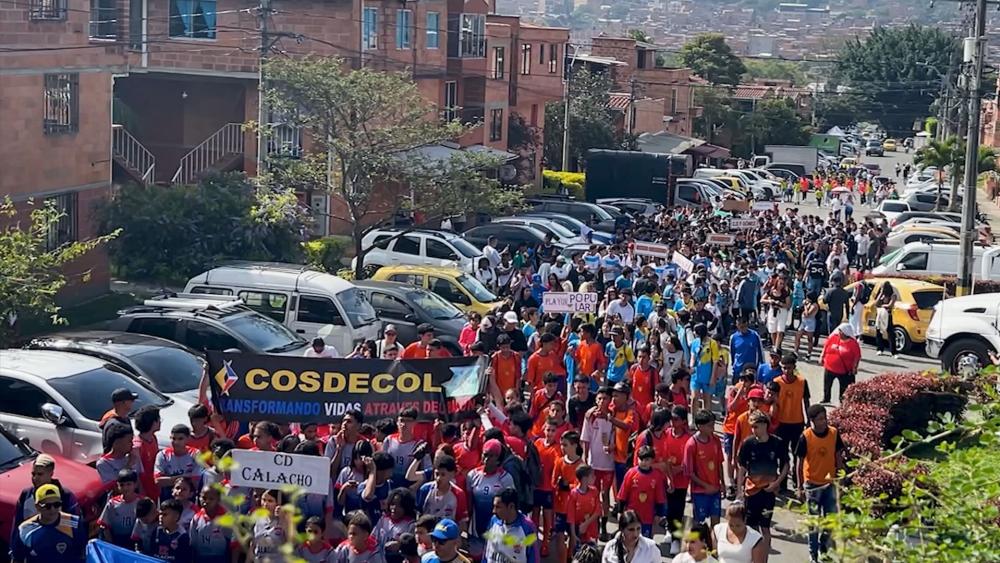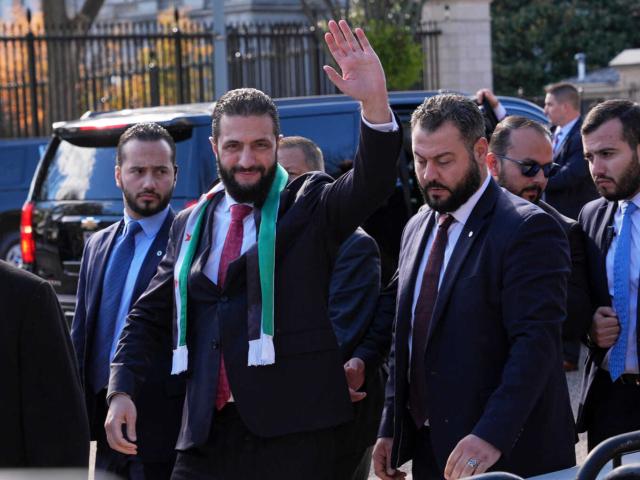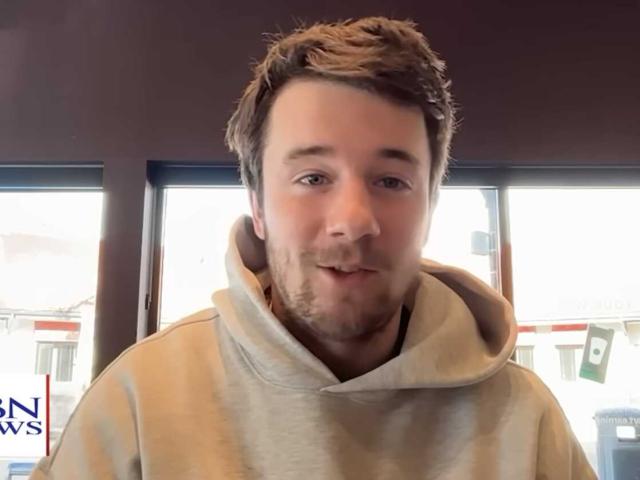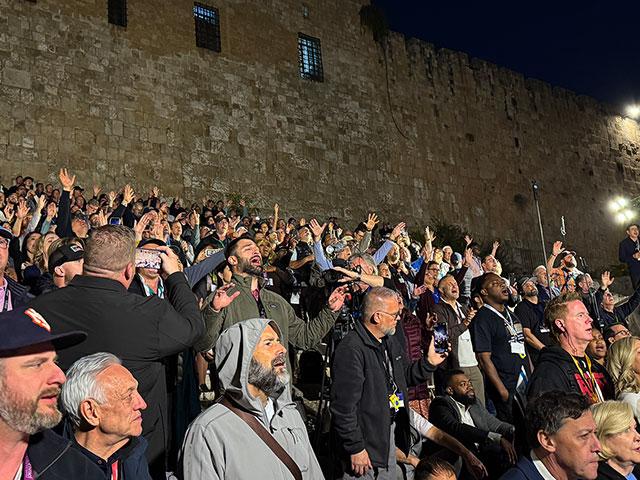MEDELLIN, Colombia – In a country plagued by violence, a remarkable transformation is taking place. Once mainly known for drugs and murder, one Colombian city is witnessing a revolution sparked by faith and fútbol.
Medellín, which lies high in the Andes Mountains, was once known as the world's murder capital.
"From 1985 to 2000, basically with that intensity, {there was} an average homicide rate of 15 to 20 per day," said Mark Wittig, president of COSDECOL, the Social and Sport Corporation of Colombia. "Psychologists would call Medellín the culture of death. And that's how it became – just so much death, so much killing."
Given the cartel's prevailing influence, children learned to kill before they could read. But even in the midst of this violence, a different kind of revolution began taking root – one fueled by soccer, faith, and hope.
American missionary Mark Wittig was born in Colombia to missionary parents and lived there until the age of 12. After spending several years in Pennsylvania, he returned to Medellín in 1985 at the height of the violence, when bullet-riddled bodies filled the streets and young boys were being recruited as soldiers.
He came to teach at Medellín's seminary, located in a neighborhood where a group of young men were working indirectly for Pablo Escobar. Despite the danger, Wittig looked past the destruction and saw something else: their deep love for fútbol. That connection became his entry point.

Going out of his way, Wittig started a soccer tournament for the neighborhood gang. "I think I was pretty innocent, I just figured that God was going to take care of me one way or another," Wittig said.
That shared love of the game was the beginning of something bigger.
"The process was just kind of a natural multiplication process of discipling," Wittig explained. "As we had resources, we'd organize teams for them. They would coach them and also share the gospel with them. As two or three of them became Christians, I would meet them every Monday for Bible study and time of prayer."
***Please sign up for CBN Newsletters and download the CBN News app to ensure you keep receiving the latest news from a distinctly Christian perspective.***
One of those transformed by this work is Alex Saldarriaga, now the Sports Director at COSDECOL. "When I turned ten years old, I was already cleaning the guns from my dad," Saldarriaga said.
Introduced to murder and the drug trade by his father – a cartel leader – Saldarriaga experienced violence from a young age.
"One day, I went home after practice and my dad was waiting for me at the door with a list of people that we needed to kill that night," he said.
For others like Wilson Rogers, joining the cartel wasn't a matter of choice – it was survival. "We were involved with these trucks and everything because we knew at that time that we needed money to survive," Rogers said.

Juan Martinez, now a coach with COSDECOL, remembers the moment his childhood changed.
"When I was 11, I found out that my mom was working as a prostitute to provide for us," Martinez said. "I left school and started selling drugs to get my mom out of that life."
Despite it all, Wittig remained focused on what Medellín's youth loved most – soccer. Before every practice, he'd share a word from the Bible. The transformation wasn't overnight – drugs, temptation, and violence were still prevalent in the lives of these men outside of COSDECOL. At one point, the danger was so real that gang members carried weapons to practice.
"We had guys taking mini-uzi submachine guns to practice – to games with them," Wittig said. "I went to jail for them… I uh, you know, went to get them out of police stations and then had them in my house as well."
Still, one thing remained more powerful than drugs, money, or power – fútbol. And for many, that was the game-changer and a connection to something greater.
"God is actively working to redeem this world. And if there was an example of that, it's COSDECOL in Medellín," Wittig said.

For players like Saldarriaga, the faith component was just as impactful.
"It was the first practice. I went there and I saw a coach with a Bible in his hand," he said. "I was very confused because, you know, for the first time, I was able to hear something about love. Something that I've never heard from my father."
Wittig added, "I'll meet them out on the soccer field – and they come for soccer. And I sort of go for their souls."
That strategy – soccer plus the gospel message – resulted in the creation of COSDECOL, now a recognized organization offering structured leagues, mentorship, and education in some of Medellín's hardest-hit areas, and throughout multiple states in Colombia with plans to plant their ministry in Venezuela and beyond.
"For the glory of God, many of those who once lived in violence are now serving in this ministry," said Alex Saldarriaga.
In areas like Manantiales, where thousands of displaced Colombians have settled – often without running water or electricity unless provided by local gangs – COSDECOL has managed to create sanctuaries where children can play, learn, and grow. Although they fuel crime, violence, and drugs, the gangs have given COSDECOL the green light to come in, serve the community, and build a soccer field. The impact is incalculable.
"Our coaches have earned a good reputation in the neighborhood – even the gangs like them," Wittig said. "Even the gang leaders want their kids to train with our teams."
That trust has allowed COSDECOL to reach more than 45,000 lives. With three soccer fields, a ministry complex, and even a brownie business that helps fund half of its operations, the organization continues to expand. Partnerships with semi-professional teams and American universities have led to soccer clinics and talent development programs for youth in need.
"We learn, and we learn from Jesus. His knowledge and all that is perfect," said Miguel, a local COSDECOL player.
Another youth, Emiliano, added, "Sports help teach us the values of Jesus, help us to distract ourselves from school and help us to see ourselves."
For Saldarriaga, the transformation is personal. "Like when I decided to give my life to Christ, a lot of blessings started coming to my life," he said.
He's even made amends with his father who now lives in the jungle with the cartel. Saldarriaga travels there infrequently to visit with his father and share the gospel with the men who are working for him.
Wittig summarized the impact simply: "God's grace is greater than any sin. Where sin abounds, grace abounds even more. That's what we've seen here in Medellín – lives changed, families restored, and hope ignited."
Did you know?
God is everywhere—even in the news. That’s why we view every news story through the lens of faith. We are committed to delivering quality independent Christian journalism you can trust. But it takes a lot of hard work, time, and money to do what we do. Help us continue to be a voice for truth in the media by supporting CBN News for as little as $1.












 Support CBN News
Support CBN News







